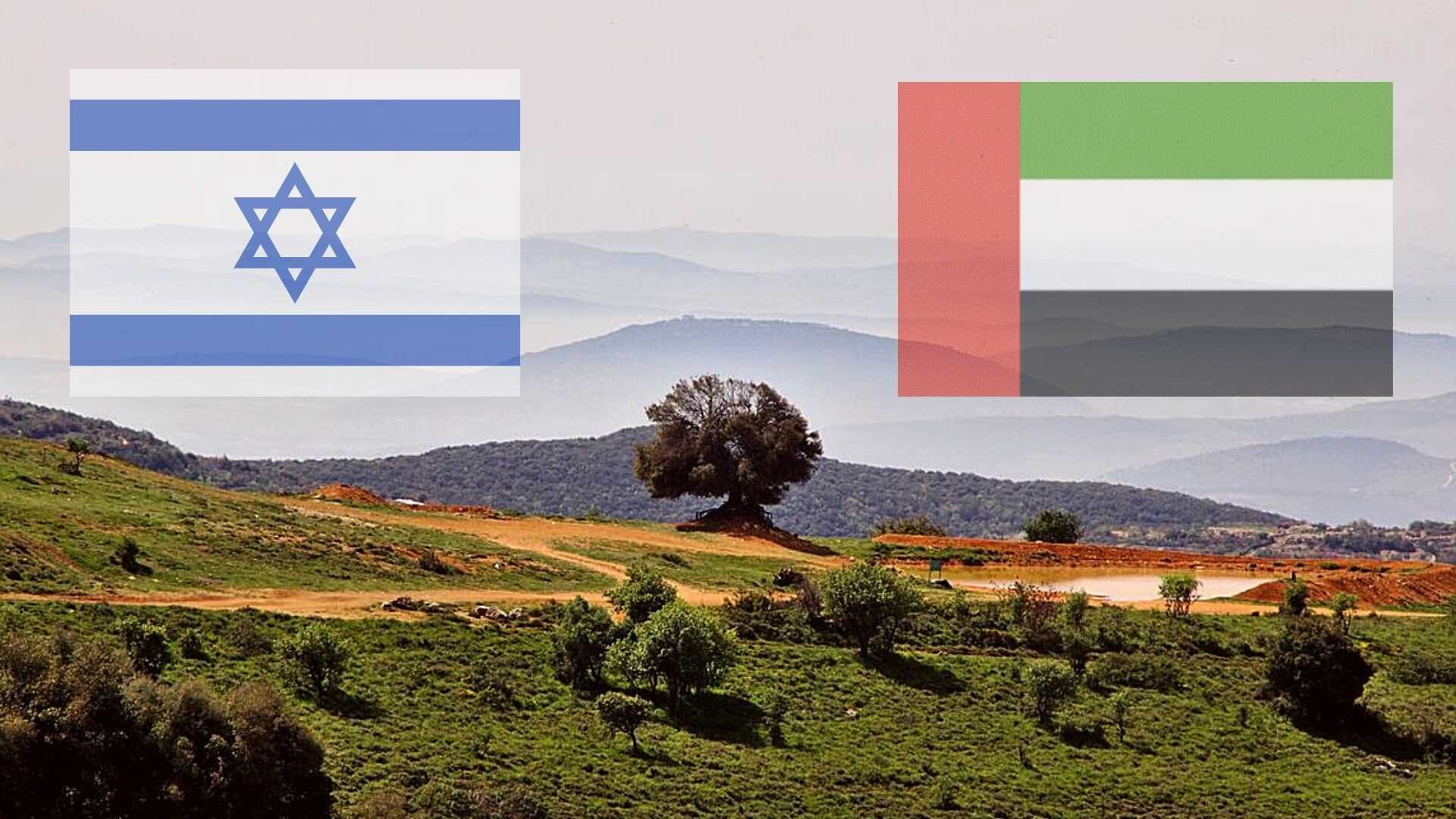Written By David Bli Shem, Posted on September 10, 2020

On August 13, 2020, the UAE signed a historic deal with Israel, with the help of Donald Trump that establishes full diplomatic relations between the two successful Middle Eastern countries. For his success, Donald Trump has been nominated for a Nobel Peace Prize.
Under this agreement, the two nations signed “bilateral agreements regarding investment, tourism, direct flights, security, telecommunications, technology, energy, healthcare, culture, the environment, the establishment of reciprocal embassies and other areas of mutual benefit.” One of the most important parts of this peace deal is the fact that the UAE officially ended its boycott of Israel and is the third Arab country to establish peace treaties with Israel (after Egypt and Jordan).
But how did the Palestinians react, and how does this affect a possible solution to the conflict?
Most people were very welcoming of the peace deal. After all, there is no logical reason why peace should be hated. But hatred is rarely logical, and if a group of people are known for their unique hatred of peace (and Israel in specific), it is the Palestinians (the Palestinian government at least). The Palestinians unanimously rejected the peace deal, even though it did not concern them. Furthermore, Palestinians burned cut-outs of President Trump, Prime Minister Netanyahu and Abu Dhabi Crown Prince Mohammed bin Zayed al-Nahyan.
Palestinians from across the political spectrum condemned the normalization as “a betrayal of Arabs and Palestinians”. It is important to note that this is not the first time the Palestinians have rejected peace. In 1937, the Peel Commission issued a plan in which the land would be partitioned. The Jews would’ve gotten Tel Aviv and a slice of land towards the north. The Arabs would’ve gotten the rest of modern-day Israel and Jerusalem would have been under British rule. The Jews said yes, the Arabs said no.
Ten years later in 1947, the UN tried to partition the land again. The land was split equally, giving both groups of people close to 50% of current day Israel. Aside from Jerusalem being an international zone, anyone looking at the plan could see how indefensible these borders would be. Regardless of that, the Jews said yes, and the Arabs said no.
Two decades later, after the 6 Day War, Israel was making peace with its neighbours and instead of the Palestinians wanting to make peace, they signed the Khartoum resolution in which it was stated that there was to be “no peace with Israel, no recognition of Israel and no negotiations with Israel”. Most recently, in 2020, the Trump administration came up with yet another plan for a possible two-state solution in which the Palestinians would get more land, a tunnel between Gaza and the West Bank and 50 billion dollars to help start their new country. Once again, the answer was no.
6 Day War
The 1967 Khartoum Resolution clearly shows the Palestinian unwillingness to compromise for peace. Recently, Saudi Arabia has allowed Israel to use its airspace to fly to the UAE. This is proof that Saudi Arabia is warming up to Israel and will most likely, at some point in the future, officially recognize Israel and follow in the UAE’s footsteps and have full diplomatic relations. Furthermore, it seems that Bahrain is next in the region to normalize relations with Israel.
What this shows us is that more and more Middle Eastern countries are realizing that there are many benefits to normalizing with Israel, seeing as Israel is a leader in technology, medicine, military and much more in the region. Additionally, it seems that Arab countries are losing their patience with “the Palestinian cause”. While decades ago, it may have made sense to support the cause, the Palestinian hatred and unwillingness to make peace are making neighbouring Arab countries realize that a Palestinian state may never come to fruition and that establishing relations with Israel is the better way to go.
Without support from Arab countries, it is not unreasonable to say that the “Palestinian cause” will slowly die out. Arab countries are one of the main supporters of the cause, but if they stop supporting it, the Palestinians will be left on their own and come to the realization that it is in their best interest to make peace with Israel instead of wage war for a state that is unlikely to come.
It’s safe to say that what benefits Israel, will most likely benefit the Middle Eastern countries who made peace with Israel in one way or another. A one-state solution in which Israel governs the land is a good thing. While in the past, a one-state solution may have been popular in left-wing politics, the 2005 Gaza withdrawal completely changed things. The withdrawal allowed for Gaza to become a terrorist hotbed with Hamas in power who launch rockets into residential centres of Israel very often. In terms of security, a one-state solution is the only viable option.
Giving the Palestinians Gaza and the West Bank will allow for attacks from the east and west, with the West Bank being a hilly area, making it difficult to reclaim. From a religious standpoint, making Judea and Samaria (West Bank), part of Israel makes sense seeing as some of Judaism’s holiest sites are there.
Furthermore, the over 400,000 Jews currently living there would not have to leave their homes and could continue to live in the heartland of biblical Israel. Thus, if Israel benefits from a one-state solution, so do other Arab countries. The one-state solution would solidify Israel’s position in the Middle East and make it one of the strongest countries in the region. A strong Israel is a stable Israel. And a stable Israel is a stable Middle East.
Bunch of pedophiles covering for other pedophiles. Looking forward to the day the criminals running this country and the media…